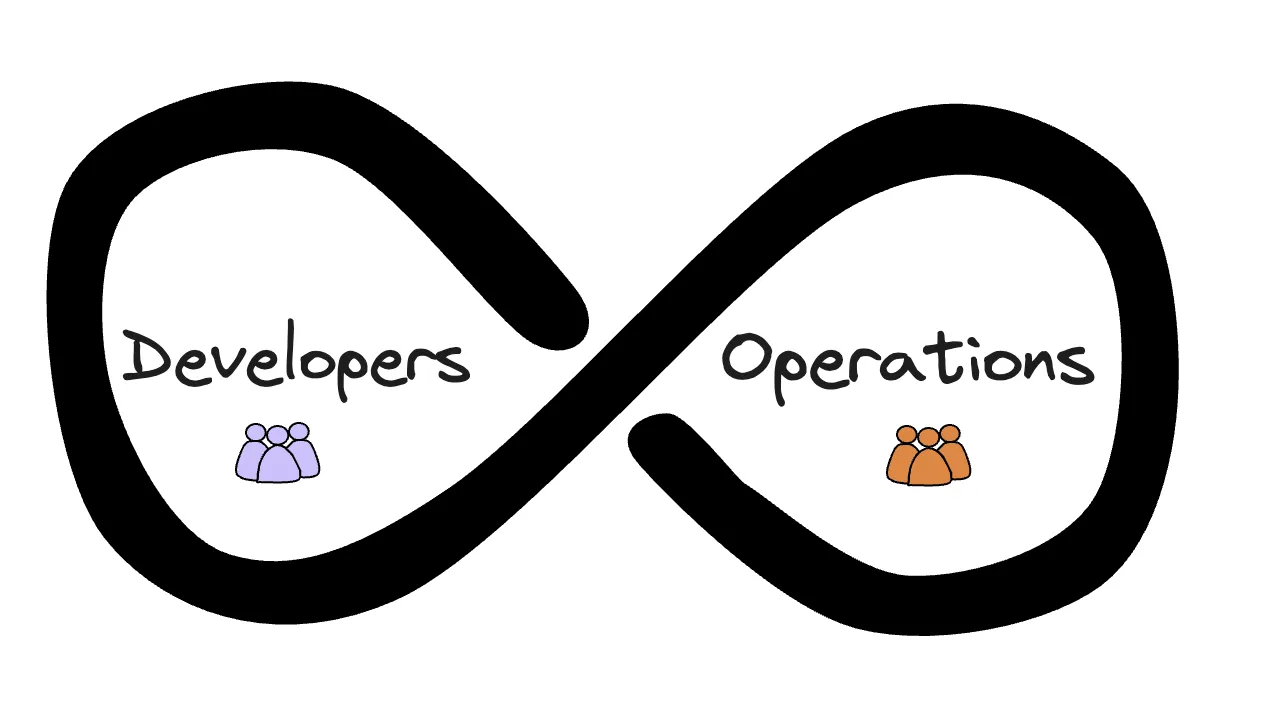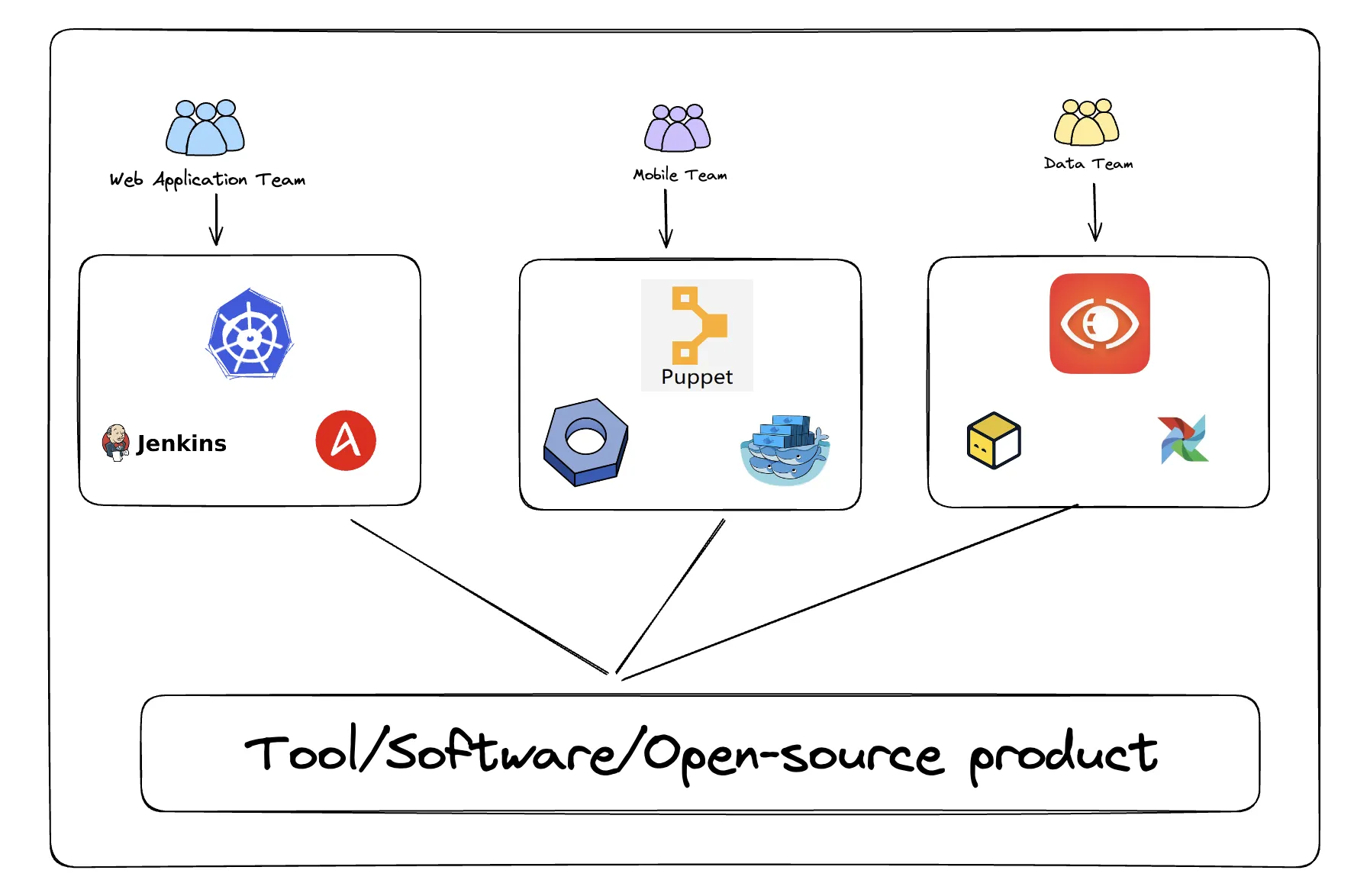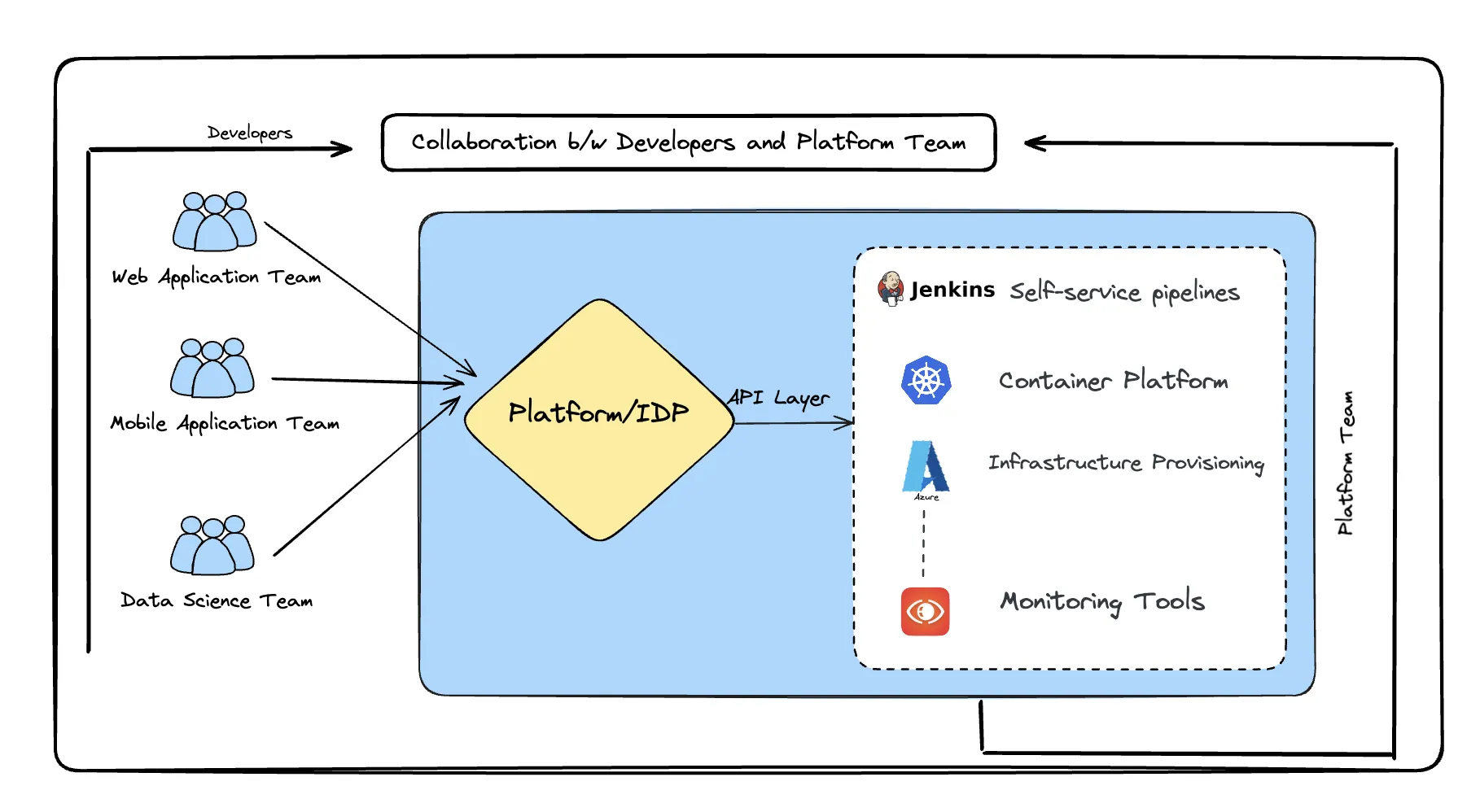Platform Engineering vs DevOps - Key Differences Explained
In the ever-evolving landscape of software development, two approaches have gained significant traction: DevOps and platform engineering. While both aim to improve the software delivery process, they have distinct focuses and methodologies. This article explores the key differences between platform engineering and DevOps, their roles in modern software development, and how they complement each other to drive innovation and efficiency.
What is DevOps? Understanding the Foundation
Software Development Cycle
Before we discuss DevOps, let's look at the typical steps involved in creating software, like building a website for an NGO. This includes planning, analysis, design, implementation, testing, integration, and maintenance. This process becomes more complex when dealing with larger software products. The Two Departments In most organizations, two main departments handle software delivery: - Development Team: Focuses on writing code and creating new features. - Operations Team: Handles deployment, traffic, and security maintenance.
There's often a gap between these two teams, leading to delays in product releases. So to bridge the gap between development and operation teams there is a term that came to the picture “DevOps”. DevOps is not just about learning tools; it's a cultural practice that emphasizes teamwork, communication, and collaboration between the development and operations teams. The goal is to enhance security, speed up processes, ensure quality, and automate as much as possible to reduce manual work and bugs in production.

DevOps came into existence in order to solve above problem. Let’s discuss about DevOps.
DevOps is a collaborative approach to software development and IT operations that breaks down traditional silos between teams. It emphasizes seamless communication, shared responsibility, and automation to achieve faster delivery, improved quality, and increased efficiency.
The key principles of DevOps include:
- Continuous Integration (CI): Regularly merging code changes into a central repository.
- Continuous Delivery (CD): Automating the release process to deploy code changes quickly and reliably.
- Automation: Streamlining repetitive tasks to reduce errors and improve consistency.
Core Practices in DevOps
To implement DevOps effectively, organizations adopt several core practices:
- CI/CD Pipelines: Implementing automated workflows for building, testing, and deploying code changes.
- Infrastructure as Code (IaC): Managing and provisioning infrastructure through code, ensuring consistency and reproducibility.
- Monitoring and Observability: Implementing tools and practices for proactive issue detection and resolution.
- Continuous Improvement: Regularly reviewing and optimizing processes to enhance efficiency and quality.
- Culture: Fostering a culture of shared responsibility and continuous improvement
These practices enable teams to deliver software faster, with fewer errors, and respond more quickly to changing business needs.
Limitations of DevOps in Modern Software Development
The introduction of DevOps brought a wave of change to the software development world, fostering better collaboration between developers and operations teams. Despite its benefits, as technology evolved, certain limitations of DevOps began to surface, especially in more complex and scalable environments. This has led to the emergence of platform engineering, a discipline aimed at resolving issues that DevOps alone cannot address.
Imagine a software organization with multiple DevOps teams, each specializing in different aspects of product development. Each team has chosen open-source tools that are well-regarded in the community but come without any commercial backing or enterprise version.
Let’s take an example where the Core Web Application Team (Team A) utilizes Kubernetes for orchestration, Ansible for infrastructure provisioning, and Jenkins for continuous integration and deployment. The Mobile Application Team (Team B) employs Docker Swarm for orchestration, Puppet for infrastructure provisioning, and Buildbot for continuous integration and deployment. Meanwhile, the Data Science Team (Team C) leverages Apache Airflow for orchestration, Terraform for infrastructure provisioning, and Prometheus for monitoring and logging.

There are challenges raised by using different tools in the same organization. Like, Integrating various tools across teams can be tough, leading to inconsistent practices and making it hard to enforce standards. The mix of tools also demands more training, raising the learning curve and complicating knowledge sharing. Managing these tools increases operational costs and can cause delays, especially when developers, who are also handling operational tasks, face bottlenecks. The "You Build It, You Run It" approach adds to the pressure, stretching developers too thin and potentially impacting the quality of their work.
As DevOps continues to struggle with the increasing complexity of software systems and diverse technological ecosystems, the necessity for an evolved strategy is clear. So there is a need for a “Platform” raise where we can combine these tools. The term "platform" typically refers to a combination of tools, services, and technologies designed to enable developers to build, deploy, and manage applications more efficiently and effectively. So, Platform engineering emerges as this necessary evolution, specifically designed to address the challenges that DevOps alone cannot solve.
What is Platform Engineering? Exploring the New Paradigm
Platform engineering is a specialized discipline that focuses on designing and building toolchains and workflows to support software development teams. Its primary goal is to create self-service platforms that enhance developer productivity and streamline the software delivery process.
Key components of platform engineering include:
- Internal Developer Platforms: Centralized systems that provide developers with self-service access to tools and resources.
- APIs and Abstraction Layers: Interfaces that simplify complex infrastructure and services for easier consumption by development teams.
- Standardized Workflows: Predefined processes that ensure consistency and reduce cognitive load for developers.
Platform engineering addresses the growing complexity of modern software development by providing a structured, efficient environment for developers to work in.

The Role of Platform Engineers
Platform engineers play a crucial role in optimizing the software development lifecycle:
- They design and maintain scalable, reusable infrastructure components.
- Create developer-friendly interfaces and self-service portals.
- Optimize workflows to reduce cognitive load for development teams.
- Balance standardization with flexibility to meet diverse team needs.
By focusing on these areas, platform engineers enable development teams to focus on creating business value rather than managing complex infrastructure and tooling.
Platform Engineering vs DevOps: Key Differences Explained
While platform engineering and DevOps share some common goals, they differ in several key aspects:
- Scope: DevOps is a broad cultural and operational approach, while platform engineering is a specialized discipline focused on tooling and infrastructure.
- Focus: DevOps emphasizes collaboration and the optimization of processes across development and operations teams to ensure smooth and efficient delivery. On the other hand, platform engineering is dedicated to creating efficient, self-service platforms that empower developers to work independently with the tools and infrastructure they need.
- Outcomes: The primary outcomes of DevOps include faster delivery of software, improved quality, and increased operational efficiency while Platform engineering targets enhanced developer experience and productivity.
- Team Structure: DevOps is typically implemented as a shared responsibility across multiple teams, with everyone contributing to the DevOps culture. In contrast,Platform engineering typically involves dedicated teams focused on building and maintaining developer platforms.
How Platform Engineering Complements DevOps Practices
Platform engineering enhances DevOps practices in several ways:
- Standardization: It provides consistent, self-service platforms that align with DevOps principles.
- Cognitive Load Reduction: By abstracting complex infrastructure, platform engineering allows DevOps teams to focus on core development tasks.
- Scalability: Platform engineering enables the scaling of DevOps practices across large organizations by providing standardized tools and processes.
- Governance: It improves consistency and compliance across multiple DevOps teams through centralized management of tools and workflows.
These complementary aspects demonstrate how platform engineering can amplify the benefits of DevOps practices, especially in complex, large-scale environments.
The Evolution from DevOps to Platform Engineering
Several factors have driven the emergence of platform engineering:
- Increasing Complexity: As software systems grow more complex, managing infrastructure and tooling becomes increasingly challenging.
- Scale Limitations: Traditional DevOps practices can take more work to scale across large organizations with multiple teams and projects.
- Developer Productivity: The need to optimize developer experience and reduce time spent on non-core tasks has become a priority.
Platform engineering addresses these challenges by providing a more structured approach to managing development environments and workflows. It builds upon the foundation laid by DevOps, extending its principles to create more efficient, scalable systems for software delivery.
Using these IDPs, Developers have the flexibility to choose the right level of abstraction to run their applications. Let’s say, you want to build something around Helm charts, Kubernetes, and deploying using GKE. Now, they have the flexibility to just self-serve an environment that comes fully provisioned with everything they need to deploy and test their code, without worrying about where it runs!
Implementing Platform Engineering in a DevOps Environment
To introduce platform engineering concepts to existing DevOps teams:
- Assess Current Workflows: Identify pain points and inefficiencies in your current DevOps processes.
- Define Platform Goals: Establish clear objectives for your internal developer platform, such as reducing deployment time or improving code quality.
- Start Small: Begin with a pilot project to demonstrate the value of platform engineering approaches.
- Iterate and Expand: Continuously gather feedback and refine your platform, gradually expanding its scope and capabilities.
When building an internal developer platform, consider:
- Standardization vs. Flexibility: Strike a balance between enforcing best practices and allowing teams to customize their workflows.
- User Experience: Design intuitive interfaces and self-service portals that developers will want to use.
- Integration: Ensure your platform integrates seamlessly with existing tools and processes.
Measure the success of your platform engineering initiatives through metrics such as:
- Developer satisfaction scores
- Time to deploy new applications
- Reduction in support tickets related to development environment issues
Monitoring and Observability in Platform Engineering and DevOps
Effective monitoring is crucial for both DevOps and platform engineering practices. It enables teams to detect and and resolve issues quickly with performance optimization. It also helps to make data-driven decisions about infrastructure and application design.
SigNoz, an open-source application performance monitoring (APM) and observability tool can enhance monitoring capabilities for modern software architectures. It provides, end-to-end distributed tracing, detailed performance metrics and also real-time alerts and notifications
By implementing SigNoz, teams can gain deeper insights into their applications and infrastructure, supporting both DevOps and platform engineering efforts.
Getting Started with SigNoz
SigNoz Cloud is the easiest way to run SigNoz. Sign up for a free account and get 30 days of unlimited access to all features.
You can also install and self-host SigNoz yourself since it is open-source. With 24,000+ GitHub stars, open-source SigNoz is loved by developers. Find the instructions to self-host SigNoz.
It uses ClickHouse, a columnar database, to efficiently store and provide access to log data for analysis.
SigNoz uses OpenTelemetry for instrumenting applications. OpenTelemetry, backed by CNCF, is quickly becoming the world standard for instrumenting cloud-native applications.
The logs tab in SigNoz has advanced features, such as a log query builder, search across multiple fields, structured table view, JSON view, etc.
Key Takeaways
- Platform engineering and DevOps are complementary approaches that optimize different aspects of the software development lifecycle.
- DevOps focuses on culture and processes, while platform engineering emphasizes tooling and infrastructure.
- Platform engineering aims to enhance developer productivity through self-service platforms and standardized workflows.
- Both practices are essential for organizations looking to improve their software delivery capabilities and stay competitive in the digital landscape.
FAQs
What are the main differences between platform engineering and DevOps?
Platform engineering focuses on creating tools and platforms to support development teams, while DevOps is a broader approach that emphasizes collaboration between development and operations. Platform engineering can be seen as a specialized discipline within the DevOps ecosystem.
Can platform engineering replace DevOps?
No, platform engineering complements DevOps rather than replacing it. It provides the tools and infrastructure to support DevOps practices more effectively, especially in large-scale environments.
How does platform engineering improve developer productivity?
Platform engineering improves productivity by providing self-service platforms, standardized workflows, and abstraction layers that reduce the cognitive load on developers. This allows them to focus on writing code and creating business value rather than managing complex infrastructure.
What skills are needed for platform engineering compared to DevOps?
Platform engineering requires deep technical knowledge of infrastructure, APIs, and tooling, as well as a strong understanding of developer workflows. DevOps skills often encompass a broader range of areas, including collaboration, process optimization, and cultural change management.
